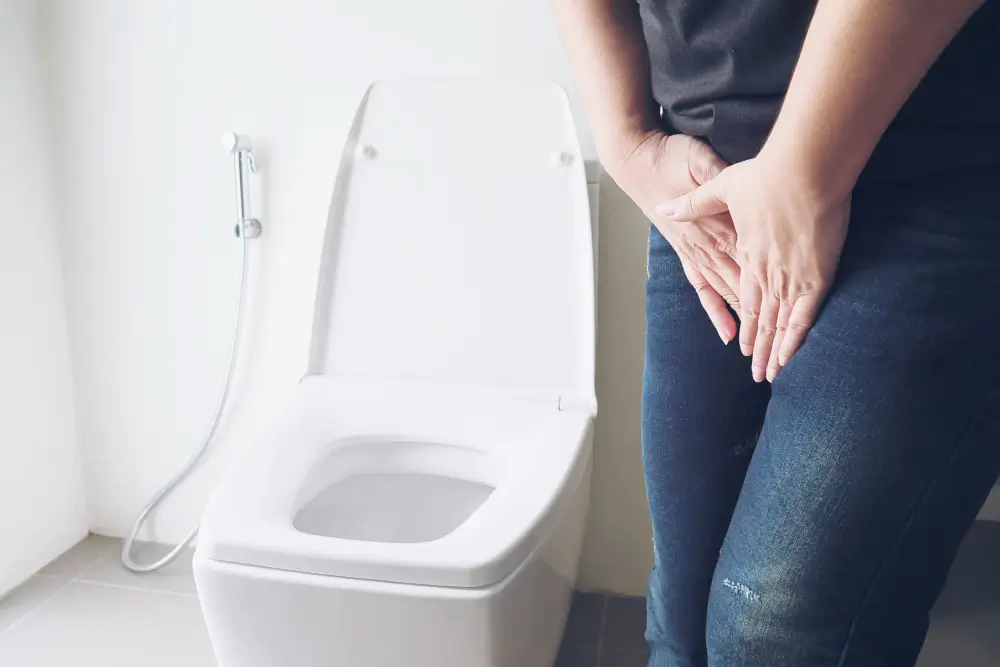Urinary Incontinence, or the accidental or unintentional leakage of urine, is a very common condition faced by women after giving birth. While it can be very uncomfortable and embarrassing, it might be relaxing for women to know and understand that with proper care and appropriate medical advice, this condition is treatable and manageable. There are many ways to lessen the symptoms and provide women the opportunity to regain lost confidence, quality of life, and control. In this article, we will discuss in detail urinary incontinence after pregnancy and how to manage it.

What are the reasons for urinary incontinence following pregnancy?
As per the Best gynaecologist near me, the pelvic floor, as well as the pelvic tissues and muscles, undergo a lot of strain during pregnancy and to a greater extent during labor. Vaginal childbirth can initiate weakening of your pelvic floor muscles, too, especially if a woman has a longer labor than the typical, and the use of forceps suggests at least some degree of stretching occurred. Not to mention, women are subject to hormonal fluctuations throughout pregnancy, and the weight of the baby is a unique pressure on the bladder. Therefore, when a new mother sneezes, coughs, exercises, or even laughs, some might experience a leakage of urine.
What are the types of urinary incontinence after pregnancy?
The most common type is stress urinary incontinence, which would be defined by the unintentional loss of urine with physical activity or pressure on the abdomen; a woman may experience urge incontinence, or intense need to urinate, or both. It’s important to be able to establish the type of urinary incontinence a mother might be experiencing, as this helps to determine the best treatment in any case.
Lifestyle changes that might help with Urinary Incontinence
According to Gynecologist near me, there are many simple lifestyle changes that can have an enormous impact on urinary incontinence:
- Bladder training: This involves planning set times to visit the toilet and strengthening the bladder to increase the time between visits.
- Pelvic floor exercises (Kegels): Strengthening the pelvic floor muscles will help the pelvic muscles regain strength and restore urinary control. It all comes down to persistence; it has been shown that some will see results in only weeks while others need months.
- Dietary changes: Decreasing the intake of caffeine, alcohol, and spicy foods can help decrease bladder irritation.
- Weight management: Excess weight increases the pressure that the bladder and pelvic muscles are subjected to.
Medical and Non-Surgical Treatment Options
If it is determined that lifestyle changes have not had enough of an impact on a patient, the Pregnancy doctor may propose other solutions. Physiotherapy with a specific focus on pelvic floor training, vaginal cones, and electrical stimulation can build muscle strength. In some cases, Pessary devices may be recommended for the support of the pelvic organs. If the mother is still experiencing symptoms, there does exist minimally invasive surgical options, including urethral injections and sling procedures.
If you are looking for the Best gynaecologist near me or Best gynecologist hospital near me, Sohana Hospital might be an ideal choice for you. Sohana Hospital Mohali boasts of the world’s most advanced cutting-edge technology and North India’s most trusted and renowned Gynecologists who provide the most holistic and comprehensive pregnancy care in the region. With its state-of-the-art, highly advanced NICU, Sohana Hospital ensures the best treatment possible for the baby in cases of complex births and other serious conditions. Sohana Hospital aims to provide the gold standard of healthcare to every pregnant woman, being her trusted ally during the most amazing moments of her life.
